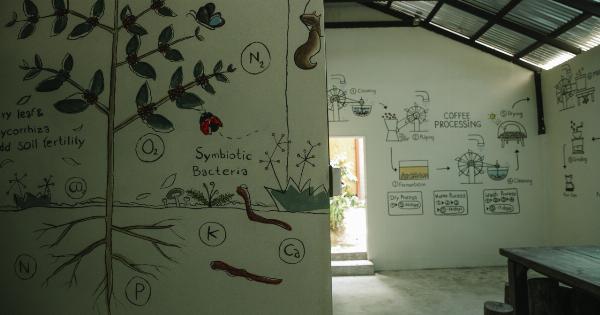Coffee is one of the most popular beverages worldwide. It is consumed by millions of people every day and has become an integral part of many cultures. While opinions about coffee vary, there is no denying the impact it has on our lives.
In this article, we will explore the pros and cons of daily coffee consumption to help you make an informed decision about your caffeine habit.
The Pros of Daily Coffee Consumption
1. Boosts Energy Levels: One of the biggest advantages of drinking coffee is its ability to increase alertness and combat fatigue. The caffeine in coffee acts as a stimulant, blocking the neurotransmitter adenosine, which makes you feel tired.
It can provide a much-needed energy boost in the morning or during a mid-day slump.
2. Enhances Cognitive Function: Coffee has been shown to improve various cognitive functions, including memory, attention span, and reaction time. The caffeine in coffee stimulates the central nervous system, increasing neuronal firing in the brain.
This can enhance cognitive performance, especially when you need to focus and concentrate.
3. Rich in Antioxidants: Coffee is a significant source of antioxidants, which help protect the body against damage from harmful free radicals.
Antioxidants have several health benefits, including reducing the risk of chronic diseases, such as heart disease, certain cancers, and neurodegenerative conditions like Alzheimer’s and Parkinson’s.
4. May Aid Weight Loss: Caffeine is known to stimulate metabolism and increase fat oxidation, making it a popular ingredient in many weight loss supplements.
Coffee can help boost your metabolic rate and, when consumed without added sugar or high-calorie additives, can be an excellent addition to a healthy weight loss regimen.
5. May Lower the Risk of Certain Diseases: Research suggests that regular coffee consumption may be associated with a reduced risk of several diseases, including type 2 diabetes, liver disease, and certain types of cancer.
The antioxidants and other bioactive compounds present in coffee are believed to provide protective effects, but more studies are needed to fully understand these potential benefits.
The Cons of Daily Coffee Consumption
1. Increased Heart Rate and Blood Pressure: Coffee stimulates the release of adrenaline, which can temporarily increase heart rate and blood pressure.
While this effect is generally harmless for most people, individuals with pre-existing cardiovascular conditions should monitor their caffeine intake and consult their healthcare provider if necessary.
2. Disrupts Sleep Patterns: The stimulating effects of coffee can interfere with sleep, especially when consumed in the evening or close to bedtime.
Caffeine blocks the sleep-inducing neurotransmitter adenosine, making it harder to fall asleep and potentially leading to shorter, less restful nights. Avoiding coffee later in the day or switching to decaffeinated options can help mitigate this issue.
3. Potential Stomach Issues: Coffee is acidic and can cause digestive symptoms in some individuals. It may trigger acid reflux, indigestion, or worsen symptoms for those with gastrointestinal conditions like irritable bowel syndrome (IBS).
If you experience stomach discomfort after coffee consumption, switching to a low-acid or decaffeinated variety might be a suitable alternative.
4. Dependency and Withdrawal: Regular coffee drinkers may develop a dependency on caffeine to function optimally. When caffeine intake is abruptly reduced or discontinued, it can lead to withdrawal symptoms such as headaches, irritability, and fatigue.
Managing caffeine consumption and gradually reducing intake can help minimize these effects.
5. Stains and Damages Teeth: Coffee is notorious for staining teeth due to its dark pigments. Additionally, the acidic nature of coffee can weaken tooth enamel, leading to tooth decay and sensitivity.
Drinking through a straw or practicing good oral hygiene habits, such as brushing after consuming coffee, can help mitigate these effects.
Conclusion
Like most things in life, coffee consumption has its ups and downs. The pros of daily coffee consumption include increased energy, enhanced cognitive function, antioxidants, potential weight loss benefits, and reduced risk of certain diseases.
However, it is important to be aware of the cons related to heart rate and blood pressure, disrupted sleep patterns, potential stomach issues, dependency and withdrawal, as well as dental stains and damage.
Ultimately, the decision to include coffee in your daily routine should be based on individual tolerance, health considerations, and personal preferences.
Moderation is key, and for those with specific health concerns or sensitivities, alternative options like decaffeinated coffee or herbal teas can provide a suitable caffeine-free alternative.





























